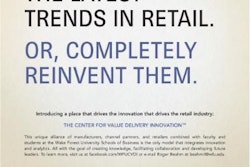Chicago—Aug. 25,--Agentrics, a provider of retail and supply chain solutions, has launched new Product Lifecycle Management (PLM) software to help retailers and manufacturers overcome the complexity in managing an increasing number of product launches and own-label products in the business.
The launch follows the completion of a successful trial at a leading drugstore retailer in the United States, taking just three months to fully implement the solution. Globally, consumer spend on private label was highest in the grocery sector, but health and beauty drug retailers also witnessed healthy share growth in 2010, according to data from Nielsen. A 2010 study by RSR Research showed 70 percent of large retailers have increased their private label assortment in the last two years, with private label sales already bringing in around $100 billion a year in North America.
The Agentrics software, named PLM Active, will allow retailers to quickly adopt IT best-practices and processes, which will simplify and increase the speed of new product launches, it says. Currently, product launches can typically take anything between ten and forty weeks to prepare, and sometimes double that in the US, because of the vast quantities of information and numerous suppliers involved. PLM software helps everyone in an organisation, from the design stage right through to production, marketing, packaging and the supply chain, align themselves by accessing a single, reliable source of data.
“Quite a few of our larger, supermarket customers, are already benefiting from our enterprise solutions to help run very successful private-label businesses,” says Jeremy Whinnett, director PLM at Agentrics. “But as the own-label market expands and gets more and more complex to manage, many other retailers and manufacturers want to get in on the action.”
Increased consumer demand for products which are more sustainable and competitively priced is putting greater pressure on retailers to compete head on with national brands – fuelled in part by the economic recession and rising prices. New regulatory requirements and food safety standards are also paving the way for retailers having to quickly and efficiently ensure that any products in the supply chain are backed up with sound, accurate information. For instance, a food company might have to substantiate claims that a product definitely contains no nuts and was “Made in the US”, as stipulated on the label; while a hard goods retailer might have to suddenly dispel media claims that items were unethically sourced using sweatshops in the Far East. Even during the recent e-coli scare in Europe which killed over 40 people, supermarkets have had to be able to quickly identify and point out that no products were at risk, or otherwise be seen to remove any at risk products immediately from the shelves.
Whinnett says that the “out-of-the-box” pre-configured PLM Active solution, available via the Internet on a reduced-cost subscription basis (Software as a Service), will be ideally suited to smaller to mid-sized retail businesses with a growing proportion of own-label products. The software includes tools to assist with the collaborative development of products and a single supplier database, ensuring a single version of the truth and less exposure to manual data-entry errors. Using PLM Active, retailers can provide details on everything that goes into a product, from the idea stage right through to the shelf.
“Many retailers and manufacturers are put off by the perceived scale and upfront costs of a big IT implementation, concerned that benefits often take too long to materialise,” says Whinnett. “Yet the flip side of not having any PLM systems in place and using nothing but basic spreadsheets to manage thousands of products, with sometimes hundreds of suppliers and varying product attributes, is far more daunting. So we’re seeing more and more retailers looking for a quick fix and scalable IT solution for the future.”
“PLM Active gives the ability to control the launch of individual products, much more quickly,” he says. “It also allows retailers to substantiate any claims made, whether it’s to verify products’ ingredients, labelling or supply chain details. Everything becomes so much more transparent and easier to use with a centralised database of pertinent information at your fingertips. With a single glimpse, retailers get a holistic view of all products throughout their entire life, giving rise to considerable cost savings and faster time to market.”
For more information, visit www.agentrics.com.












